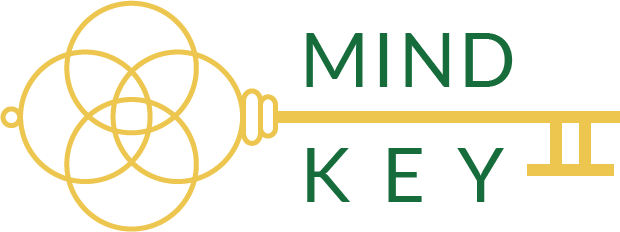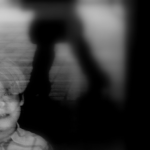
Parenting without ego: Living and teaching our children safety and authenticity
By Danielle Rose
If our ego is a guidance structure that we created for ourselves as children, then the best way to ensure our children create their own healthy guidance system is through conscious parenting. That means parenting without ego. That means seeing our ego for what it is, and not coloring everything through that lens. It involves facing the fears of parenting, of your own youth, of your future and the future of your children. It involves taking steps to become whole and forgetting what others have to say about the matter. Parenting without ego also involves incorporating all of our inner voices into one coherent direction.
Sound overwhelming? Well, so is parenthood. The good news is that, as always, we’ve got the keys to help you figure it out. We hope you’ll let us know which of the following suggestions resonate most for you.
Conscious parenting: Face the fear and hurt
Magical Mothering healer and coach, Stephanie Mathews, supports parents as they step through their ego and the fears that often come with it. Her goal is to teach others how to parent from a place of wholeness and love.
Stephanie understands that “Parenting is a place of healing, learning and growing just as much as it is about teaching, sharing and connecting.” She further stated,
“The term ego for me as a parent and as a coach is found most often in my fears. I know that when I am coming from a place of trying to control others, this is my ego. I know when I am blaming, feeling like a victim or not taking responsibility for my actions, this is also coming from my ego. The first step is awareness of who is leading the actions taken as a parent, the ego or our higher self.”
Writer, organizational whiz and mother of three, Charla Dury, believes that parenting without ego means, “Sometimes you have to be able to act silly with your kids and not worry about what other people think about you. It means doing what’s right for that kid in that moment and trying not to think of how it will affect you.”
Food for thought: Am I coming from a place of connection or am I coming from a place of fear?
Becoming whole
Stephanie feels that work with the ego brings us to a place of being whole. To her, being whole means willing to be open, seen and accepted just as you are. She has seen parents pass the pain and trauma of their own childhood down to their children.
She also feels that “Working to become whole with ourselves first creates space for us to become the parents we truly desire to be.”
Stephanie believes this aspect of becoming whole must come first, before being able to implement all the parenting tools and knowledge we have acquired.
Taking this one step further is the need to feel loved and worthy as a parent.
“So often parents have feelings of being inadequate of the job they are doing. The inadequacy feelings often show up as guilt, resentment, frustration, yelling and being overly controlling,” Stephanie continued. “When working with the ego, we get to find the root of the issues, which allows us to step into the true freedom of being able to love our children, and ourselves, unconditionally.”
Mother, writer and magic maker, Marisa Goudy examines how by protecting ourselves from unresolved hurts, we set ourselves up to stifle our children. In her post, The Shame of a Shushed Story she shares how her avoidance of an uncomfortable event created hurts for her daughter that never before existed.
“As I dive deep into what it means to tell stories, I’m learning just as much about how to receive and keep stories,” Marisa stated. “Stories need to be held and reviewed when they bubble up. When they are stifled, they become the monsters of shame and doubt and fear.”
Food for thought: How can facing the pain that I’m holding open the way for my child to be freer and less encumbered by fear?
Incorporating all of our voices in Conscious parenting
The ego is simply one of many voices that speaks to us on a daily basis. Whether those voices come from things we read, experts we turn to or our own inner voice, they rarely ever say the same thing.
In “Who do I listen to in here?” The Belief Coach, Wendy Watson-Hallowell, talks about the three dominant inner voices and how they work with (and often against) each other as we navigate life and parenthood. We cannot avoid those voices or try to shut them out. Instead, our best recourse is to examine where they are coming from and try to make sense of it all.
The dominant voices that work together with the ego are our inner child and our higher self (or intuition).
“Our ego will always be a part of us,” Stephanie further stated.
“It is the human dimension of what allows us to see ourselves as separate, so that we may have an individual experience. I teach the parents in my groups to connect to their egos through their inner child. The inner child is often fearful, scared of getting in trouble, the people pleaser, and they hold all the pain from childhood. Even adults that did not experience trauma as children have an inner child. This inner child was born at the same time as, and works hand-in-hand with, the ego. This is where most of decision-making comes from and where we often parent from.”
Stephanie likes to call the higher self “the magical mother” or “magical father” figure. She agrees that the inner wisdom of the magical parent will often come in conflict with the wisdom of the other aspects of self.
“There is always a stark contrast between the child, ego, and the magical parenting self,” she shared. “This allows for the awareness that is required to make the changes possible. This healing work of connecting to the inner child and stepping into the magical parent is the best way that I have found to fully heal and parent from a place of unconditional love.”
Food for thought: Where are some places our inner child, our ego, and our intuition became blocked as children? How can we heal those places today?
Forget what’s out there
Sometimes incorporating all of the voices means shutting down the outside ones, too. That could mean zoning out when your kids are arguing (either with each other, or with you), not letting the hype about what it means to be a good parent coloring your value system, or the agreed-upon middle ground established between your inner voices. There’s a lot out there that people will want to share when it comes to being a “good” parent, but if you know your boundaries, what you believe, and can hear your inner voice on a good day, then you can filter through a lot of the junk and worry simply about what is right for you and for your child.
Presence is one of our hardest lessons, but letting go and focusing on what’s right in front of you is one of the best tools for navigating life that you can teach your child and yourself.
“Parenting without ego means realizing that many things aren’t worth fighting about,” Charla said. “Realizing when your kid is actually doing their best, even though you could do more and think they could, too.”
The important thing, according to Stephanie, is to show your children how to have control over their emotions and how to accept themselves unconditionally.
Food for thought: What is one of the basic “parenting rules” you absolutely hate? How can you start to let this structure fall away so you can live and parent more authentically?
Practice Conscious parenting and guide your children
Of course, the best way to teach your children how to live with healthy egos is to parent without ego. Learning and using coping skills such as these will teach your child how to incorporate them into their daily lives as well.
Stepanie shared that “Implementing coping skills that create connection and developing self-control are the best ways to living with a healthy ego not just for our children, but for ourselves as parents.”
Stephanie and the Mind Key team offers some of our favorite keys for teaching your child how to structure a healthy ego that will serve them throughout their life.
- EFT or Tapping
- Chakra cleansing
- Spending time in nature
- Yoga and/or meditation
- Gong or other sound healing
- Sharing moments of gratitude
- Family dinners
“I have found that allowing children to feel their feelings fully is the most important aspect to a healthy ego as a child,” Stephanie added, and this couldn’t be truer when it comes to conscious parenting.
Food for thought: Ask your child if they have learned any tools in school, from relatives, on TV or in books for expressing their feelings. How can the two of you work together to try incorporating one of those tools into your life together?
To further assist you on your path to parenting without ego, Stephanie is offering a Free 15 minute magical parenting mini-session to help parents see where ego is keeping them stuck. In the session, you will see the effects of your ego. You will also see what is possible as you heal and make choices from a magical parenting mindset. Visit Stephanie at http://magicalmothering.com/ to sign up today.
Are you having trouble trying to figure out what the best parenting tools are for you? A mini coaching session with Danielle Rose can help you find the right methods of personal growth that work best with all the egos in your family.



 Conscious parenting means allowing your child’s ego to guide them. Image by JoAnna Schillaci.
Conscious parenting means allowing your child’s ego to guide them. Image by JoAnna Schillaci.  Conscious parenting means allowing your child’s ego to guide them. Image by JoAnna Schillaci.
Conscious parenting means allowing your child’s ego to guide them. Image by JoAnna Schillaci.